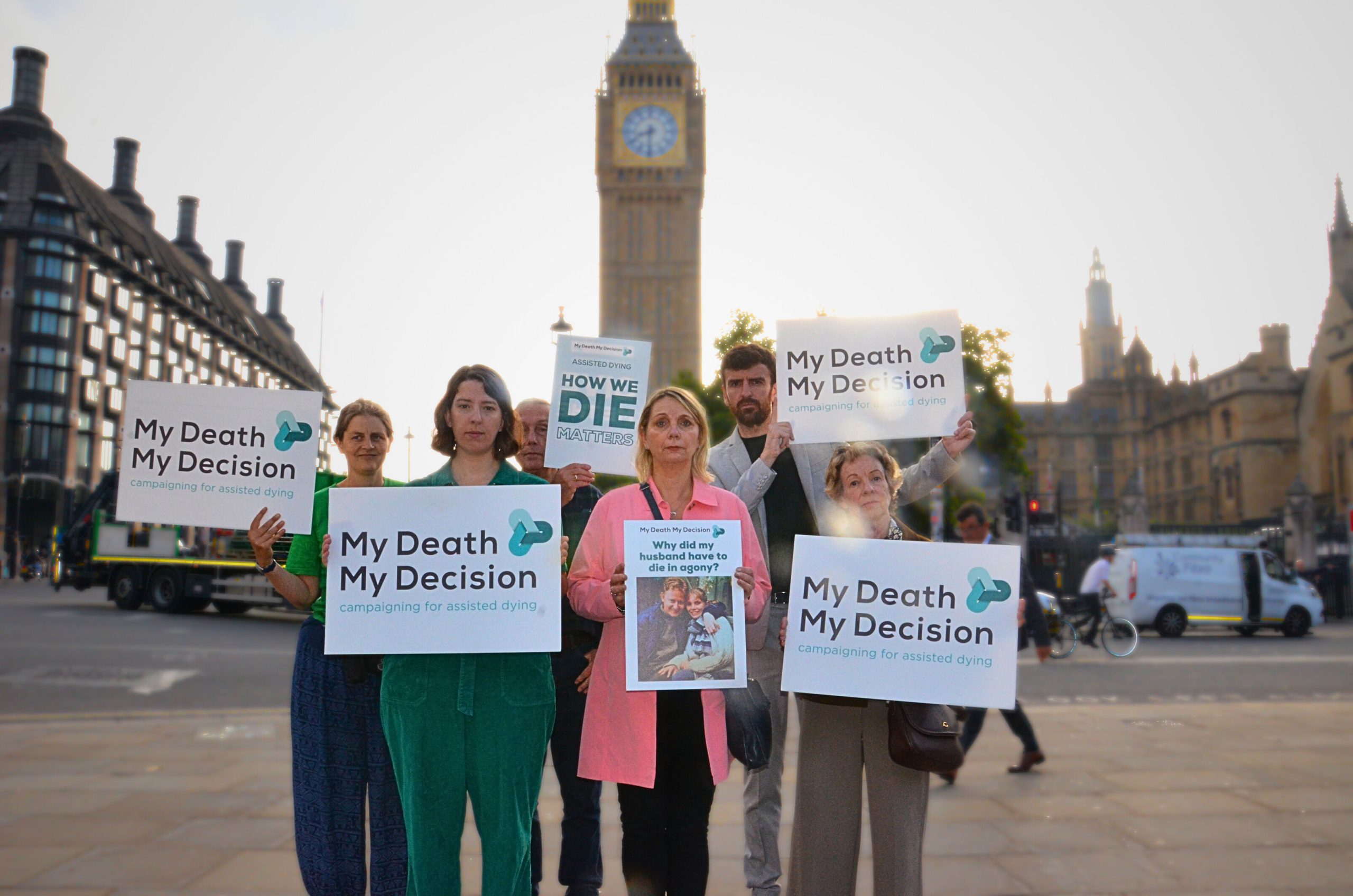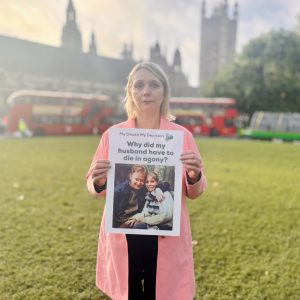 The House of Lords has set up a Select Committee to examine assisted dying in a historic first as the Bill passed its Second Reading in the Lords, a critical stage of the Bill’s passage into law. No such committee has ever been created for a Private Member’s Bill that originated in the Commons, and this has happened just once for government legislation.
The House of Lords has set up a Select Committee to examine assisted dying in a historic first as the Bill passed its Second Reading in the Lords, a critical stage of the Bill’s passage into law. No such committee has ever been created for a Private Member’s Bill that originated in the Commons, and this has happened just once for government legislation.
The move to establish a Select Committee happened during the second day of the Terminally Ill Adults (End of Life) Bill’s Second Reading in the House of Lords. The record-breaking debate saw nearly 180 peers speak over the two days, making it the longest debate with the highest number of speakers for any Private Members’ Bill. It is also a first for the UK Parliament in having the Lords grant a Second Reading to an assisted dying bill which has come from the Commons.
An amendment to establish a Select Committee was agreed between Lord Falconer, the sponsor of the Bill in the Lords, and Baroness Berger. It agree to without a vote. The Select Committee will consider the safeguards and procedures of the Bill and hear evidence from professional bodies, those with professional experience of coronial services, and Ministers, and will report by 7 November. A further motion would be needed to appoint the members of the committee.
If the Bill is to pass, it needs to complete all stages by the end of the parliamentary session in spring 2026. The amendment will permit further evidence to be taken on the Bill while having a limited, three week impact on its timeline. It will further evidence the unprecedented scrutiny and debate the Bill has benefited from, contradicting claims that the Bill is being rushed through. Following the reporting of the Select Committee by 7 November, the Bill will progress to its Committee Stage for detailed line-by-line scrutiny.
Dr Graham Winyard, Board Member of My Death, My Decision, said:
‘This was a record-breaking debate, with the most speakers for a private members’ bill of any kind, and the first time an assisted dying bill from the Commons has passed Second Reading in the Lords. With the creation of a Select Committee the Bill continues to receive unprecedented scrutiny and debate.
‘Parliament today has taken a step closer to finally recognising that dying people deserve the choice of a safe, compassionate assisted death. We urge MPs and peers to carry this momentum forward so that the law can be implemented without delay, bringing dignity and peace of mind to those at the end of life.’
 Juliette Sykes, widow of Tim Sykes who died of oesophageal cancer in 2021, attended Parliament today. She said:
Juliette Sykes, widow of Tim Sykes who died of oesophageal cancer in 2021, attended Parliament today. She said:
‘It breaks my heart that Tim didn’t have that choice; his final months were full of suffering he desperately wanted to avoid. But today brings me great comfort, and I hope no other family will be forced to endure what we did. Politicians need to come together, support this Bill and finally offer choice and compassion to people like Tim.’
During the debate, a number of peers made passionate speeches in support of assisted dying.
Baroness Thornton read out the letter of Pamela Fisher, a Church of England preacher, who said:
‘I live in terror at how the final weeks of my life may be, I have seen other family members, brother, father-in-law, at the end of their cancer journey and I know what may lie ahead – even the best palliative care has its limits, and this is the deadweight of fear that I carry around with me all the time.
‘I am not asking anyone to help me shorten my life, in supporting this Bill, I seek to have the choice to shorten my death in my final weeks should my pain and suffering be unbearable.’
Lord Brooke of Alverthorpe said he has changed his mind on assisted dying, previously being opposed, he now supports a change in the law:
‘My Lords, for some dying is welcomed and is peaceful and serene; for others it is full of difficulties, is full of great difficulties of pain, anxiety and misery, notwithstanding all the admirable efforts of palliative care. People with terminal illnesses, in my experience in recent years have seen dying in fear, acute pain and misery. Of course this can be avoided, as has been said by others, if one has the money. Anyone can go to Switzerland to Dignitas for assisted dying at a price. Further you can go virtually safe in the knowledge that it’s highly unlikely that any punitive action will be taken against you.’
‘Why, why isn’t such action taken? Isn’t it because most people see assistance with dying for the terminally ill as an act of caring, compassion and love. For those without the funds for that, this bill, amended as the house sees fit, provides just that, for them to do it at their homes. My Lords, who am I to deny that those less able to afford it should not have that choice?’
Baroness Blackstone said:
‘When my former husband, in hospice care, was dying of stomach cancer at the age of 44 in agonising pain, with terrible nausea too, he desperately wanted it to come to an end – — as he put it –– and asked for my help. I tried to persuade his carers to speed up his death, but failed. Is this killing? Was his wish to die by suicide? Surely not. He loved life and had not wanted to die. But he was dying, and when life became truly unbearable he longed for death. But because of the law, I could not help him end his torture.’
Baroness Royall of Blaisdon said:
‘I’m a humanist. I respect those who believe in the sanctity of life and I subscribe to many of their values. But this bill will not compel anyone to act against their conscience. It provides agency and choice to people who are near death with the ability to decide how they spend their final days whether they have faith or no faith.’
Lord Willetts said:
‘The Bill has many provisions to address concerns about coercion. But we have heard less about the coercion that is already in force today under the law today. Using the power of the state to forbid some of the most compassionate forms of assisted dying. That is coercion too and it is causing deep human distress, as we have heard. Sometimes we can use and do use the power of the law to enforce a settled moral consensus in our society. That is not the case here.’
Notes
For further comment or information, media should contact Nathan Stilwell at nathan.stilwell@mydeath-mydecision.org.uk or phone 07456 200033. (media only)
My Death, My Decision have people and their loved ones who would be affected by this change available for the press.
My Death, My Decision is a grassroots campaign group that wants the law in England and Wales to allow mentally competent adults who are terminally ill or intolerably suffering from an incurable condition the option of a legal, safe, and compassionate assisted death. With the support of over 3,000 members and supporters, we advocate for an evidence-based law that would balance individual choice alongside robust safeguards and finally give the people of England and Wales choice at the end of their lives.
Humanists UK and My Death, My Decision are both members of the Assisted Dying Coalition, along with Friends at the End, Humanist Society Scotland, and End of Life Choices Jersey.

